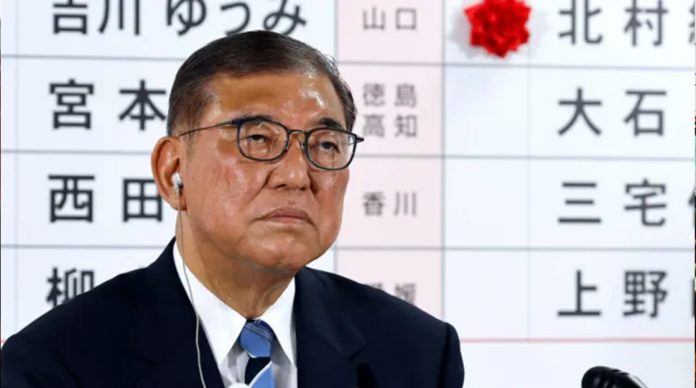Japan’s ruling coalition has lost its majority in the country’s upper house, but Prime Minister Shigeru Ishiba has said he has no plans to quit.
Voters went to the polls on Sunday for the tightly-contested election, being held at a time of frustration at the coalition of the Liberal Democratic Party (LDP) and its junior partner Komeito over rising prices and the threat of US tariffs.
Speaking after polls closed on Sunday, the prime minister said he “solemnly” accepts the “harsh result” but that his focus was on trade negotiations.
Having already lost its majority in Japan’s more powerful lower house last year, the defeat will undermine the coalition’s influence. The ruling coalition needed 50 seats to retain control of the 248-seat upper chamber. It ended up with 47.
The Constitutional Democratic Party, the main opposition, came in second with 22 seats.
Half of the seats in the upper chamber were being voted on in Sunday’s election, with members elected for six-year terms.
Jeffrey Hall, a lecturer in Japanese Studies at Kanda University of International Studies, told BBC News support for more right wing parties had cut into the LDP’s conservative support base.
“Prime Minister Ishiba is considered not conservative enough by many supporters of the former Prime Minister [Shinzo] Abe,” he said.
“They think that he just doesn’t have the nationalistic views on history, he doesn’t have the strong views against China that Abe had.”
Shinzo Abe was formerly the leader of the LDP and was Japan’s longest-serving prime minister, in office twice between 2006 and 2007, and 2012 and 2020.
Credit: bbc.com









